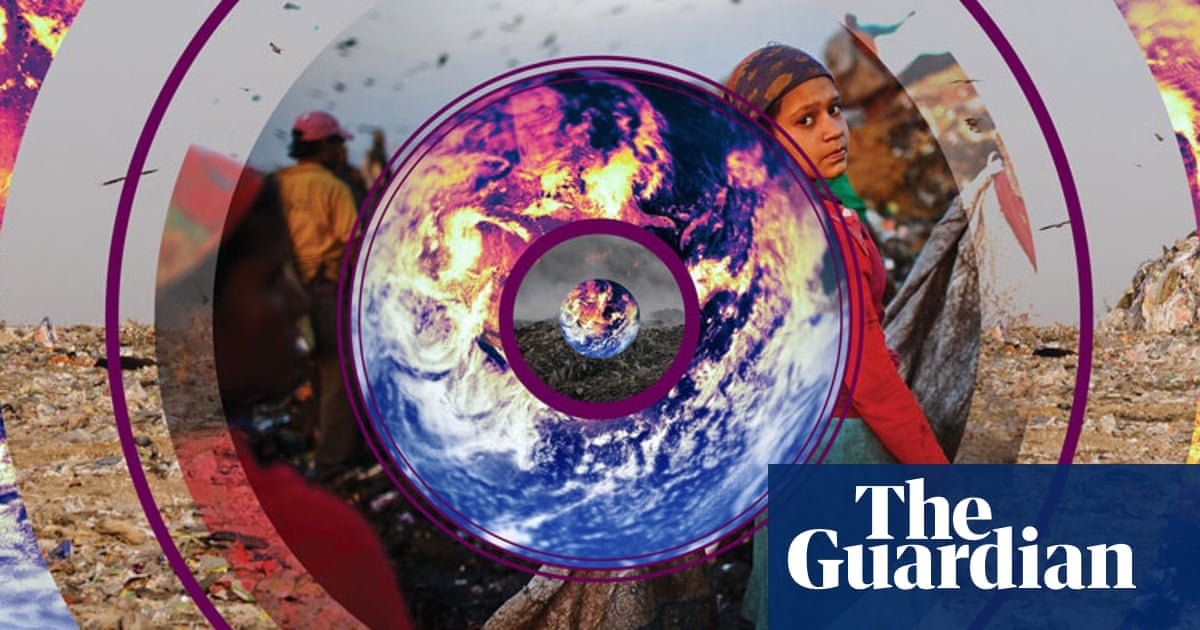A total of 1,256 methane super-emitter events occurred between January 2019 and June 2023, according to the new data. Pakistan, India and Bangladesh lead the list of nations with the most large leaks, followed by Argentina, Uzbekistan and Spain.
Decomposing waste is responsible for about 20% of human-caused methane emissions.
Prof Euan Nisbet, a methane expert at Royal Holloway University of London, said: “Big landfills make a great deal of methane but it doesn’t cost much to bulldoze soil over a stinking, burning landfill. It’s not rocket science.”
Dumps don’t have to be a problem. They can be methane producers for practical use.
Central Ohio has a landfill has a gas re-capture system in it. Its a series of pipes that go deep into the landfill and collect the gas. The city has converted their municipal heavy trucks and many city buses to run on methane so much of that gas is powering the city vehicles driving around doing city work. Any overproduction of gas is put into the methane infrastructure to be used by homes and businesses.
“SWACO has partnered with a High BTU facility - Archaea Energy - that takes a great renewable resource like landfill gas, treats it, and inserts it into a gas pipeline. This endeavor has taken a great deal of effort, resource and consideration. This public-private partnership captures and converts enough methane gas from the current Franklin County Sanitary Landfill to heat 13,386 homes in Central Ohio every year.”
“I have watched it grow from a small rubbish heap into that huge mountain over the past 20 years,” he said. “During the summer it catches fire every week because of all the gas and then it becomes even more disgusting here. It’s impossible to breathe and everyone gets sick. It feels so dangerous to live here but I have no choice – this is where my home and livelihood is.”
Yikes.
Wealthy countries shoulf stop exporting waste to LICs as well though.
Wealthy countries shoulf stop exporting waste to LICs as well though.
I get what you are saying. But for reference, developed countries also import waste from other counties. All countries are payed for the import and for waste process. What the countries really do with it is an entire other matter, but it seems many countries simply dump it. Also the proposal to turn it in a methane producing plant, or simply fill it up with soil would be smart choice. Some countries don’t do either.
Here some (older) garbage import data
But for reference, developed countries also import waste from other counties.
Sure, but it seems to me that it’s mostly LICs that are less likely to dispose of it adequately. They are also more prone to be endpoints of fake recycling.
This is the best summary I could come up with:
Analysis of global satellite data from around the world shows the populous nations of south Asia are a hotspot for these super-emitter events, as well as Argentina and Spain, developed countries where proper waste management should prevent leaks.
Methane, also called natural gas, traps 86 times more heat in the atmosphere than carbon dioxide over 20 years, making it a critical target for climate action.
Dr Richa Singh, of the Centre for Science and Environment in the city, said that while methane leaks from the global oil and gas industry were getting significant attention, the waste sector also required “urgent intervention”.
Mohammad Rizwan, 36, who owns a shop next to the Ghazipur landfill, the site of India’s biggest methane leak in the last five years, said the nearby residents were the “unluckiest people in Delhi”.
However, a huge amount of rubbish – about 15,000 tonnes a day – is dumped at the site, and satellite data in a 2022 study suggested the uncovered new waste piles may be the source of the emissions.
“The fact that the detected emissions come from a small uncovered area is an indication of the effectiveness of the [methane] capture and treatment system on the rest of the module surface,” said a spokesperson for the company.
The original article contains 2,287 words, the summary contains 211 words. Saved 91%. I’m a bot and I’m open source!



